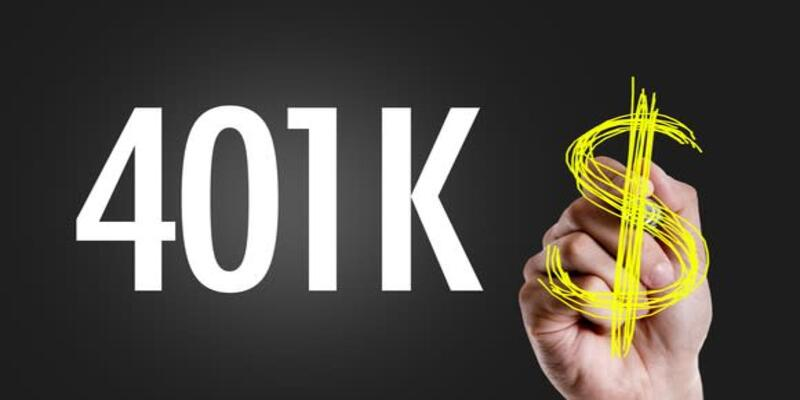What An Early 401(K) Withdrawal Really Costs When Cashing Out A 401(K)
Feb 04, 2024 By Triston Martin
Some companies provide their workers with access to 401(k) plans, similar to traditional retirement savings accounts. Workers may put money away from each paycheck into an account that can buy stocks, bonds, and mutual funds, among other things. In addition to employee contributions, employers may also make contributions on their employees' behalf. A 401(k)'s function is to help employees save for their golden years in retirement, but employees may use their funds whenever they choose, not only until they are 59 and a half. Nevertheless, there may be serious repercussions to withdrawing money from a 401(k) before it is fully vested. A potential income tax liability is associated with early withdrawal from a 401k early withdrawal costs. To add insult to injury, a 10% 401k early withdrawal costs penalty may be imposed if you remove funds from your retirement account before you turn 59 1/2.
What Is A 401(K) Account?
To save for retirement, many workers take advantage of 401(k) plans, which are sponsored by their employers and enable them to set up pre-tax dollars. Several companies provide 401(k) plans that match or share in employees' contributions to encourage workers to save for retirement. The money in a 401(k) account grows tax-free until it is taken.
What Is An Early Withdrawal From A 401(K)?
A 401(k) early withdrawal is a distribution from a retirement plan made before the account holder reaches the age of 59 and 1/2. Cashing out your 401(k) before you reach retirement age is generally frowned upon, although exceptions exist.
What Are The Costs Of Cashing Out A 401(K) Early?

Several consequences are associated with withdrawing money from a costs early withdrawal 401k, such as taxes, fines, and missed growth potential.
- Income tax: the funds in your 401(k) account are not currently subject to income taxation. Taxes must be paid on the portion of your withdrawal that you use for an early withdrawal. Taxes on withdrawals are calculated based on the withdrawn amount and the tax band the taxpayer is in at the withdrawal time.
- When you cash out your 401(k) plan too soon, you may have to pay an early withdrawal penalty of 10% in addition to paying taxes on the money you remove. The purpose of this fee is to prevent early withdrawal from 401(k) plans, and it is in addition to any taxes that may be due.
- Taking money out of your 401(k) too early means losing out on the tax-free growth that may have occurred over the years. You may be making a major financial sacrifice by doing this. You may surpass hundreds of thousands of dollars in earnings potential by taking out $50,000 from your 401(k) at age 35.
Does The 401(K) Early Withdrawal Penalty Have Any Exceptions?

Some situations qualify for a waiver of the 401(k) early withdrawal penalty, such as:
- When used for a first-time home purchase, withdrawals from your 401(k) of up to $10,000 are exempt from the 10% early withdrawal penalty.
- When used to pay for eligible higher education expenditures (tuition, fees, books, and living expenses), withdrawals from a 401(k) may not be subject to the 10% early withdrawal penalty.
- A permanent disability may allow you to take funds from your 401k) early withdrawal costs calculator "the standard" early without paying the typical 10% penalty.
- As an exception to the 10% penalty for early 401(k) withdrawals, you may be entitled to do so if you have medical expenditures that exceed 10% of your adjusted gross income but are not covered by insurance.
- Death: If you pass away before retirement age, your heir may be entitled to access your 401(k) without paying the 10% early withdrawal penalty.
Conclusion
There might be serious repercussions financially for cashing out a 401(k) too soon. If you take money out of an IRA before its time, not only will you have to pay income tax and maybe a 10% early withdrawal penalty on the money, but you'll also miss out on the growth and compounding of your assets. When deciding whether or not to take money from your 401(k) early, it's crucial to weigh the benefits against the potential drawbacks. The decision to withdraw this cash might have serious consequences for your future financial stability, even though you may feel tempted to do so in the present. For the most part, it's wise to refrain from touching your 401(k) until you reach retirement age and are no longer subject to taxes or penalties on withdrawals.

Susan Kelly Dec 02, 2023
What Are The Benefits Of Government Student Loans?
6534

Susan Kelly Nov 11, 2023
What is Unitranche debt?
82193

Susan Kelly Jan 20, 2024
What Amount of Life Insurance Is Advisable?
13076

Triston Martin Nov 10, 2023
All You Need To Know About Merrick Bank Secured Visa
45853

Susan Kelly Feb 23, 2024
Uncovering the Best Tax Software for the Self-Employed: Simplify Filing and Maximize Deductions
82396

Triston Martin Dec 01, 2023
Understanding the Importance of Insurance for Car Rentals
41852

Susan Kelly Oct 28, 2023
Watch TV Shows Online for Free
81499

Susan Kelly Dec 06, 2023
What You Need To Know About Loan Comparison Calculator
89302